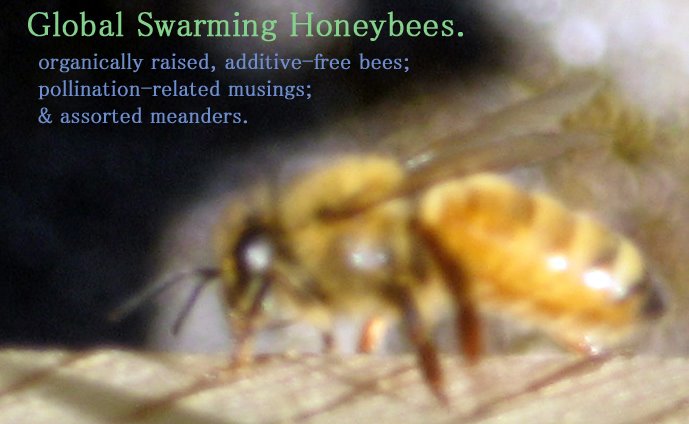 My friend Eva treated me to an amazing evening of Native American dance at the Theater for the New City last night. Featured—and you still have time to experience this for yourself—was the Thunderbird American Indian Dancers. (Both photos of the Thunderbird American Indian Dancers are by Jonathan Slaff; more can be seen here.)
My friend Eva treated me to an amazing evening of Native American dance at the Theater for the New City last night. Featured—and you still have time to experience this for yourself—was the Thunderbird American Indian Dancers. (Both photos of the Thunderbird American Indian Dancers are by Jonathan Slaff; more can be seen here.)
The performance program spanned Turtle Island (a.k.a. North America), with drumming, storytelling, and exquisite dances from the native peoples of Alaska, the Northwest Coast, the Southwest, the Northeast, and the Great Plains.
Eva has written about the event and provided links to tickets and related information on her blog, InfiniteBody. If you miss the Thunderbird festivities this year, there's always next year; the event—which raises scholarship funds for Native American students—takes place annually.
For me, highlights of the evening included the Robin Dance (a celebration of spring), the bedazzling Hoop Dance (though safely seated, I almost tripped and fell just watching this amazing feat wherein the dancers appear to float, hop, fly and swim in and out of several hand-held hoops), and the Butterfly Dance, which expresses gratitude for the beautiful gifts nature provides.
Nice synchronicity, too, with elements of Gary Snyder's endlessly re-readable essay, Ecology, Literature, and the New World Disorder, which I happen to be re-reading at the moment.
In this magnificent essay from Back on the Fire (just out in paperback), Snyder writes of performance as "currency"—big picture currency, payback for all nature provides to us, a potential vehicle for paying our respects (as we so rarely do) for the abundant, all-encompassing gifts nature bestows upon us daily, nightly, always. Snyder writes:
"One time in Alaska a young woman asked me, 'If we have made such good use of animals, eating them, singing about them, drawing them, riding them, and dreaming about them, what do they get back from us?' An excellent question, directly on the point of etiquette and propriety, and from the animals' side. I told her, 'The Ainu say that the deer, salmon, and bear like our music and are fascinated by our languages. So we sing to the fish or the game, speak words to them, say grace. We do ceremonies and rituals. Performance is currency in the deep world's gift economy.' I went on to say I felt that nonhuman nature is basically well inclined toward humanity and only wishes modern people were more reciprocal, not so bloody. The animals are drawn to us, they see us as good musicians, and they think we have cute ears.
"The human contribution to the planetary ecology might be our entertaining craziness, our skills as musicians and performers, our awe-inspiring dignity as ritualists and solemn ceremonialists—because that is what seems to delight the watching wild world."
In reading this intriguing passage yesterday afternoon, I found myself charmed, but unconvinced by Snyder's thesis. After refreshing my understanding of "performance," "ritual," "good musicianship" and the ceremonial human-animal connect at the Thunderbird event last evening, I can better appreciate what Snyder was alluding to here. Native American culture is so exceedingly marginalized in New York City that is it easy to forget—or never know—how diverse, creatively potent, psychically fulfilling, and environmentally appropriate the art and culture of Turtle Island's indigenous cultures were and are. I'm grateful for the reminder, which—like all sorely needed reminders—comes at the perfect time.
By that I mean that with spring on the way, I'm giving a good deal of thought to the questions of "etiquette and propriety" in relation to the honeybees, seeking to help them thrive without harsh interventions, going beyond the mentality of "robbing the hive," and finding workable ways of serving the bees' interests and according them the respect they deserve.
Influences like Gary Snyder's writings and last night's offering of dance, story, and philosophy help greatly in this regard.

Dear Gomez,I read your writing repeat and repeat,if ı dont understand all subject,ı believe that ı understand main subcejt.The other side,knowladge share give me very pleasure.Best regards,ı wish you succesufully beekeping future time.Have a good job.
ReplyDeleteAs always, Snyder's rich words give me much to think about. Thank you, Gerry, for amplifying my experience of Thunderbird's performance!
ReplyDeleteIlhami,
ReplyDeleteThank you for taking the time to read these writings. I am so pleased to know you enjoy this blog are taking some knowledge from it. I wish you the best, too. And the best to your bees!
I agree that sharing knowledge is a great pleasure, and I am honored to you as a reader. I love your blog, too.
Gerry